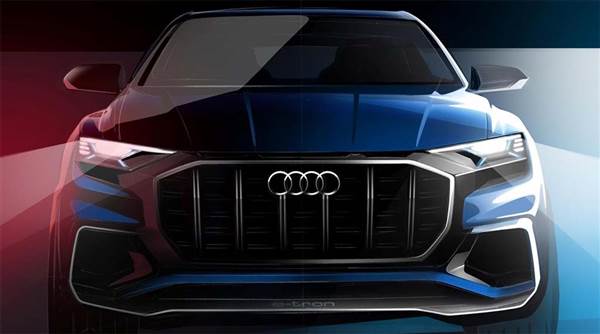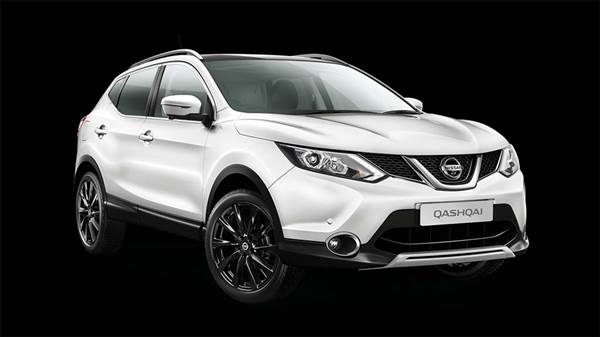World News – As many as 800,000 potential customers are expected to stream through the turnstiles at Detroit’s Cobo Center in the coming weeks for a chance to look at the dozens of new vehicles making their debut at the 2017 North American International Auto Show, or NAIAS.
 They’ll also get a look at how science fiction and everyday reality are starting to converge. Among the estimated 40 new cars, trucks, and crossovers expected to make their debut during a three-day media preview starting this Sunday, will be an assortment of concept vehicles featuring such breakthroughs as long-range electric powertrains, autonomous driving technology, even a few with onboard personal assistants.
They’ll also get a look at how science fiction and everyday reality are starting to converge. Among the estimated 40 new cars, trucks, and crossovers expected to make their debut during a three-day media preview starting this Sunday, will be an assortment of concept vehicles featuring such breakthroughs as long-range electric powertrains, autonomous driving technology, even a few with onboard personal assistants.
“The auto industry is going to change dramatically over the next decade,” forecasts Carlos Ghosn, the CEO of Nissan Motor Co., who will be among the many industry leaders gathering in Detroit during the media preview.
Connected Cars
By 2025, he predicts, nearly every car on the road will be connected, whether to each other or to a smart infrastructure that will alert motorists to, among other things, weather and traffic problems. As much as one quarter of all new vehicles will also use electrified powertrains, whether drawing energy from batteries or hydrogen fuel-cells. And a growing number are expected to have the ability to run autonomously, perhaps with no driver at all onboard.
Some of those features will be available on new production models appearing at the NAIAS. Audi is rolling out a connected car system capable of alerting motorists to when a stoplight is about to change. That feature will initially go into operation in Clark County, which includes Las Vegas, and then spread to other parts of the country.
General Motors last year debuted the world’s first long-range, mainstream-priced battery-electric vehicle, the Chevrolet Bolt EV, at the Detroit auto show. The production version will be on the Chevy stand at this year’s show.
There’ll be plenty of talk about new, long-range battery-cars in Detroit, covering virtually every product and price segment. Even Aston Martin and Lamborghini are planning electric models.
One of the more eagerly awaited introductions is the Volkswagen I.D. Microbus, a modern, battery-powered take on the maker’s classic hippie van of the ’60s and ’70s. VW, trying to move beyond the scandal surrounding revelations it cheated on diesel emissions tests, now says it plans to have 30 battery-cars in its line-up by 2025.
Self-Driving Dominates
Waymo, the autonomous vehicle arm of Google parent Alphabet, will show off a new self-driving prototype at NAIAS. The modified Chrysler Pacifica Hybrid could foreshadow a broader partnership with Fiat Chrysler Automobiles, and the pair are hinting they could begin testing the technology soon as part of an autonomous ride-sharing project.
Ford will also show off an autonomous version of its Fusion sedan. The second-largest domestic automaker hopes to launch production of a line of fully driverless vehicles by 2021, initially for use by ride-sharing and commercial delivery services.
While high-tech cars may be the industry’s future, the Detroit Auto Show will feature plenty of more traditional products. Kia will introduce the Stinger, its first true sports car. Mercedes-Benz will have a new coupe version of its midsize E-Class, as well as updates and new variants of its GT sports car. Honda will set out to prove there’s still life left in the oft-maligned minivan as it rolls out a new version of the Odyssey, the country’s best-selling “people-mover.”
SUVs Are Back
But a look at the long list of new models making their way to Detroit reveals that the vast majority reflect another major transformation sweeping through the automotive world. Nearly two-thirds of the new vehicles Americans bought last year were SUVs, crossover-utility vehicles, pickups, van and other light trucks. And few see that shift slowing down anytime soon.
So, no surprise that trucks – utes in particular – dominate the debut list. At the small end, Nissan will introduce a U.S. version of the little Qashqai model that’s been its big hit in Europe – though it will get a new name in the States.
At the high end, there’s the Audi Q8 Concept, a thinly disguised version of what will soon be a production crossover. It will effectively supplant the German maker’s A8 sedan as Audi’s flagship.
General Motors will have two new utility vehicles: updates of the Chevrolet Equinox and GMC Terrain. And Volkswagen will launch a new, longer version of its mid-range Tiguan.
Surprisingly, Toyota will buck the trend in Detroit. It will unveil an all-new version of its own flagship sedan, the Lexus LS – though that model is expected to be brimming with high-tech infotainment and safety features, including semi-autonomous driving capabilities.
Then there’ll be an all-new Camry. That sedan has been not only Toyota’s best-seller, but the nation’s number one passenger car, for decades. A new more “passionate” model is set for introduction in Cobo Center, promises Bob Carter, the head of the carmaker’s automotive operation in the U.S.
That said, Carter acknowledges that even with major improvements in styling and performance, as well as the addition of new technology, the Camry is likely to lose momentum in the years ahead. It’s likely, the company anticipates, that the RAV4 crossover will soon nudge past Camry as the Toyota brand’s top-seller.
by PAUL A. EISENSTEIN, NBCNews.com

